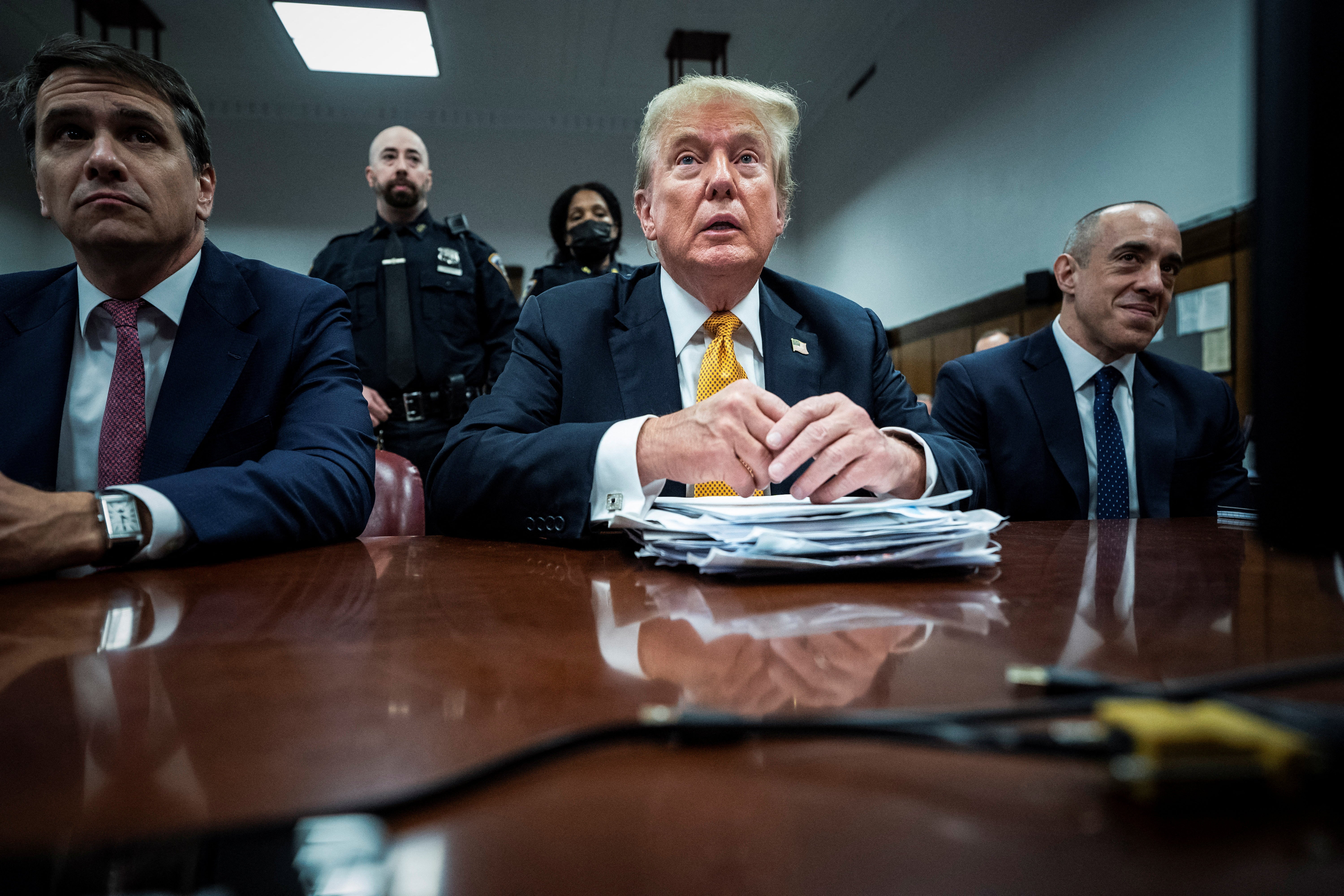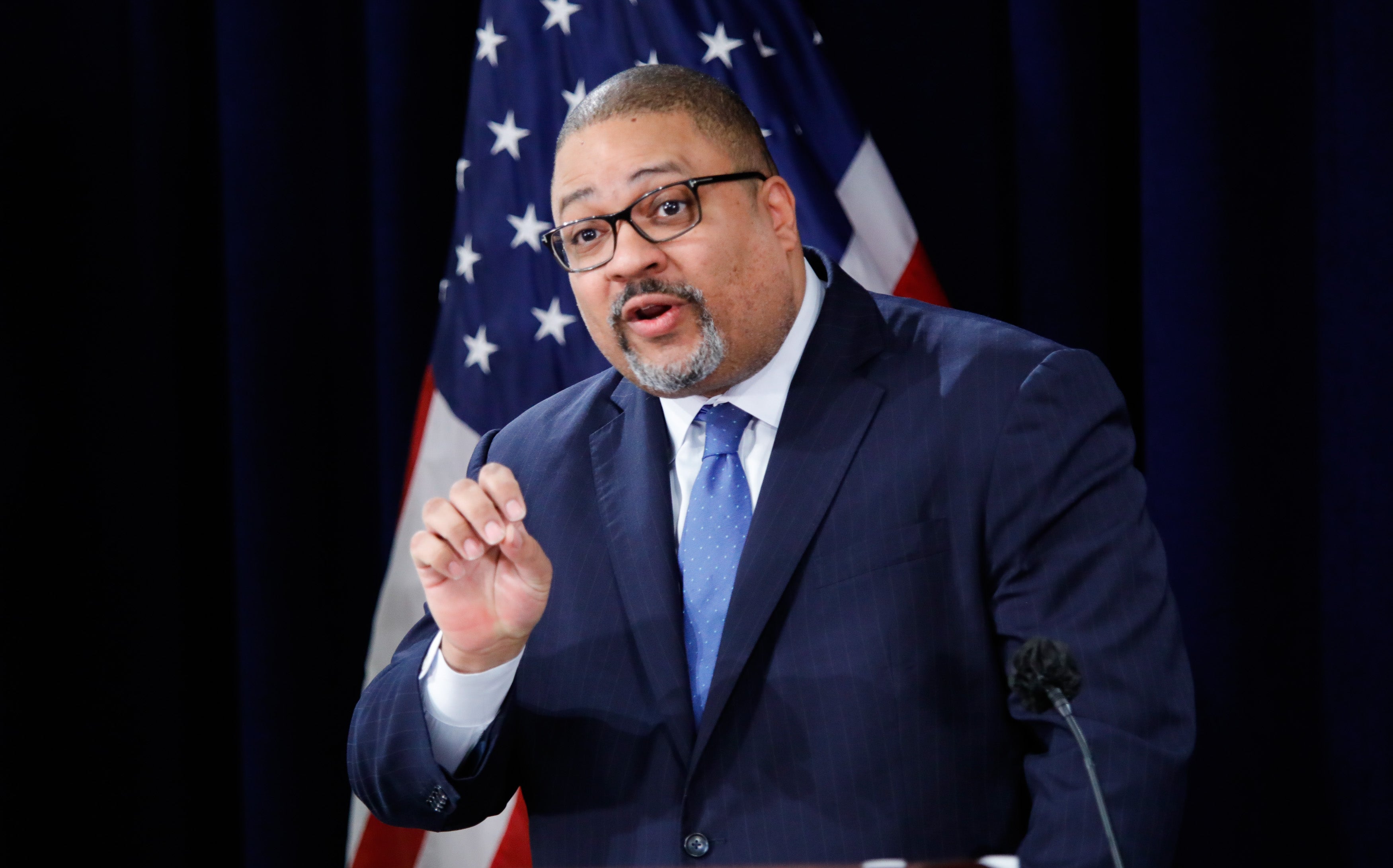Can Trump’s hush money conviction be overturned after Supreme Court immunity ruling?
Support truly
independent journalism
Our mission is to deliver unbiased, fact-based reporting that holds power to account and exposes the truth.
Whether $5 or $50, every contribution counts.
Support us to deliver journalism without an agenda.
Just hours after the Supreme Court granted Donald Trump absolute immunity for “official acts” while in office, the former president’s lawyers made moves to try to get his conviction in his hush money criminal trial overturned.
On Monday, Trump’s legal team scurried to send a letter to Justice Juan Merchan, the judge presiding over the case, asking him to throw out the guilty verdict.
Manhattan District Attorney Alvin Bragg’s office told Justice Merchan that they believe Trump’s arguments are “without merit”, on Tuesday. However, prosecutors do not oppose the former president’s request to push back the sentencing date, requesting a deadline of July 24 to file legal arguments.
The 78-year-old former president was found guilty on May 30 on all 34 felony counts of falsifying business records over hush money payments to adult film star Stormy Daniels in order to quash claims of an affair ahead of the 2016 presidential election.
Trump could now face up to several years in jail, probation, community service, hefty fines or some combination of penalties if sentencing continues to go ahead in a matter of days on July 11.
Following the Supreme Court’s landmark ruling, Trump’s team is arguing the conviction should be tossed.
But is this just a baseless, desperate attempt to quash the Republican presidential candiate’s conviction in the 11th hour, or might the defense have a case?

In the letter to the judge, first reported by The New York Times, Trump’s attorneys sought permission to file a motion to postpone his sentencing and dismiss the case altogether.
They argued the high court’s ruling reaffirmed their stance that Bragg should not have been allowed to offer evidence regarding Trump’s official acts while president.
In the Supreme Court’s landmark 6-3 ruling on Monday, the majority of justices said that Trump, and any future presidents, have immunity for official acts while in office.
Presidents, however, are not protected from unofficial acts – that is conduct undertaken in private. But the “outer perimeter” of the president’s duties must be granted some immunity, the majority wrote.
The Supreme Court has left it up to lower courts to determine what constitutes an official act, meaning that Trump’s federal election interference criminal case must now return to a lower court for further legal wranglings, leading to further delays.
Duncan Levin, a criminal defense attorney and former senior official at the Manhattan District Attorney’s Office, says that the Supreme Court’s ruling is “unlikely to change anything at all”.
“There’s really no credible argument that can be made that covering up the payment of hush money to a porn star is part of the core constitutional duties of the President of the United States,” Levin told The Independent.

“They’re doing everything they can to try to delay things and delay the sentencing… if you don’t ask for something, you don’t get it,” he added.
Prior to the Supreme Court’s ruling, Trump had previously claimed immunity from prosecution or civil threats in all cases against him, which was rejected by two judges.
One of Trump’s attorneys in the immunity case, Will Scharf, has said that the high court’s ruling now “absolutely” impacts the hush money case.
“The Supreme Court was very clear that for acts that fall within the outer perimeter of the president’s official responsibilities, acts that are presumptively immune from prosecution, that evidence of those acts cannot be used to try essentially private acts,” he told CNN.
Nothing in the indictment or the prosecutors’ case presented at trial include actions involving the presidency, other than Trump’s signature on checks to his former fixer and then-attorney Michael Cohen that reimbursed him for the payments to Daniels.
Those checks were signed when Trump was president, during his first year in office in 2017.
“As shocking as that is, that is not a core constitutional duty to sign cheques and furtherance of a criminal concern from the Oval Office,” Levin said.
Further, the deadline for post-conviction filings ended last month, and it is unclear what argument Trump’s attorneys would present to the court based on Monday’s relatively narrow ruling from the Supreme Court.
As of Monday evening, Trump’s lead attorney Todd Blanche told The Independent that he had “no comment”, adding “there is nothing public yet to share”.
However, the former president was quick to claim that the Supreme Court ruling effectively exonerated him.
In a Truth Social post, he declared that the Supreme Court’s decision “should end all of Crooked Joe Biden’s Witch Hunts against me,” including “the New York Hoaxes”.
Source link




